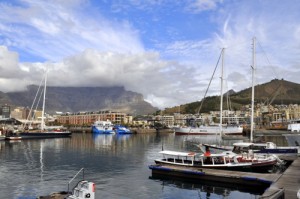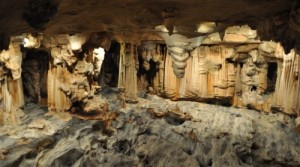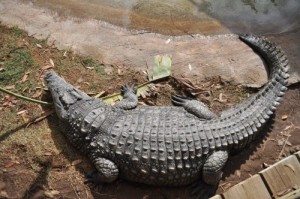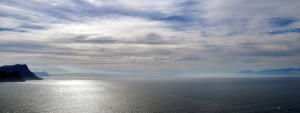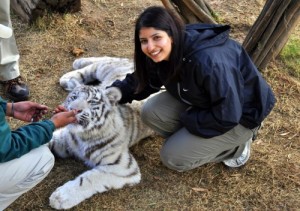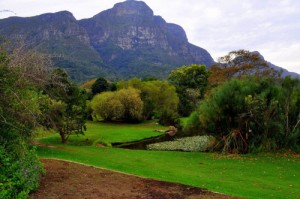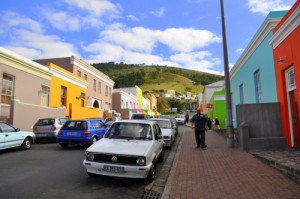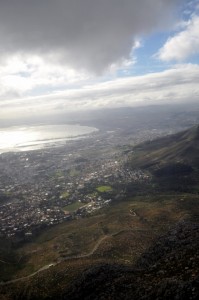
Taronish
We arrived in Cape Town at night and therefore could not see or gauge too much right away, but nonetheless I was impressed with what I saw. It was a lovely seabed of shining city life. There were also no overbearing sky scrapers or extreme mid-city-like-billboards. The city appeared ideally and pleasantly occupied.
I was quite tired and kept falling asleep on the way to our hotel, but when I did wake up, I was amazed to find humongous mountains running parallel along the city, extending right up into the sky and reflecting the moon-beams with their peaks.
In the morning, at around 9 AM, we headed off towards the Table Mountain. On the way, we saw the vast array of architecture, ranging from old-English and renaissance style buildings to modern, beachy-looking apartments with classic white balconies – stark and classy looking. Furthermore, at some point, the city gave way to a beautifully clear bay that spread vastly into the horizon.
Here are some interesting facts about Cape Town:
• The population of Cape Town is approximately 4.5 million of which there are about 2 million coloured people, 1 million white and the remainder (1.2 million or so) belong to other ethnicities such as Indian, Asian etc.
• Just like Johannesburg, there were originally no trees in the town: it is in fact reclaimed land, meaning that it used to be the sea once ; in 1945 the harbor was dredged.
• There were originally two tribes in the area that is now Cape Town, the Bushman or SAN (Stone Aged Neanderthal) and the Khoi people. The Portuguese established the first white settlement here in around 1450.
Our first brief stop was at a street aligned with several brightly coloured houses. They were incredibly attractive and unique. There was some significance to the colours – the council had requested that the houses be painted pastel, but the people contradictingly painted them with bright colours as an act of rebellion.
The first ‘big’ thing we did was riding a cable car up the Table Mountain. The cable car was fantastic because it actually slowly spun around so that no matter where you were standing, you got a full view of everything, including the water leading to the cape. When we got to the top, it was exceptionally cold and we were literally in the clouds. The top of the mountain was big and flat and I took a good walk in a loop through the paths that cut through the hardy cold-resistant shrubs. We finished with some hot chocolate at a delightful little café which was not only delicious, but also the perfect treat to warm our chilled bodies.
We then went inside a building called the Cape Town Castle of Good Hope; a really old building dating back to 1666 created from stone from the Table Mountain. It was pentagon shaped and was once a fortress. One of the rooms here had one really long wooden polished table with a hundred and one seating places, fifty on each side and you could actually have functions there even to this day!
More facts:
• Cecil John Rhodes discovered diamonds in South Africa.
• In 1838, slaves were freed in South Africa.
• The development of the Afrikaans language: how did it happen? It was created after the Dutch had occupied the land for five generations and realized that they had created their own culture and country here, so they might as well come up with their own language. They created a language for which Dutch is the basis, and they mixed it up with all the local languages of the time. This included Malay from the Indonesian slaves, and French because they were involved with the trading of wine. Then, the British influence anglicized many words. And this was in addition to influences from Hungary, Germany, Sweden and Ireland… Intensely eclectic! A common feature of of all these influences was that the ‘k’ replaceding the ‘c’. Afrikaans developed properly over a 12 year period starting in 1910 and was officialized upon the printing of the first Afrikaans newspaper in 1922.
I have been lucky enough to experience a wide array of ways of living and environments on this journey from pure untouched nature, semi-occupied rural villages, busy conventional cities like Johannesburg and now Cape Town, the ideal combination of both. I found Zambia fitting the mould of the middle path as well. For me this and Kenya felt like the real Africa I had in my mind, but then the real Africa depends on what kind of experiences one seeks. South Africa is wonderful, but at the same time it has a completely different feel.
We crossed over the mountain at Constantia Nek and made our way to the Cape of Good Hope, situated within a nature reserve. After that we visited the penguin colony at Boulder’s Beach which was just down the road. A section of the beach is closed off and the penguins are confined there , because at one stage they became overpopulated and were considered invasive to the neighborhood. They have a nice little environment set up there and we saw many African penguins sitting on the sand, on rocks on the water and in bushes and burrows.
We had a ‘free night’ that night and went to a local place called the Gold Museum for dinner. There was a set menu and live dancing and entertainment. They put face paint on the ladies as well and all their dances had a consecutive storyline.
We engaged in many tourist-like experiences which were quite action-packed, as well as our usual sight-seeing. One of the unknown surprises for me was our visit to the Cango wildlife ranch. I’m not really a big fan of the concept of zoos of late, but this one was quite good and specialized in conserving endangered animals, especially cheetahs. I did something spontaneous that they were offering as well: I patted the white tigers! What an opportunity it was! I was just playfully patting them as if they were big, friendly pets. They even just sucked the fingers of the trainers like big babies, they really were incredibly cute.
We drove past small, beach towns (a lot of the Cape Town areas are beachy because its along the coastline) with houses hoisted up on mountain faces overlooking the water. There were so many beach houses and hotels confined in one area and it seemed like such a nice, relaxed place to live. At one point, I got a side profile of the entire beach as we followed the curvaceous bend of the road. To the locals or people who live there it may just be their ordinary house, but for me it was an experience in itself because like everything else I hadn’t seen anything like that before. The suburbs near the beaches are quite small, just occupying a minute area around the beach. I would love to live somewhere like that!
We then set out to the Cango caves, another national heritage site. To think that such caves even exist and that we have actually discovered them is mind-boggling. Our tour guide was telling us about the man that wondered through. All he had was a tiny candlelight to discover the whole cave area which was massive. The explanations of how certain structures were formed such as growing up from the bottom and slowly dripping and solidifying from the top were tremendously intriguing. The last tourist stop of our day was our visit to the ostrich farm where we got the chance to feed them. Then crazily enough I sat on one and rode it for a short while. I didn’t even know ostriches could be sat on, let alone ridden!. They put a blindfold over the bird because they will be less stressed if they cannot see what’s happening. They have the same body temperature as humans so it was really warm. I then had to hold on underneath the wings and lean back. The jockeys were holding onto the back and then we took off – I had no idea they would run so fast! When they are riding properly, the riders hold onto their necks to turn in different directions. We then got the chance to test the theory about the strength of their eggs which can hold 200kg width wise and up to 300kg upright. The largest member of our group stood on them and they didn’t budge. They commonly use the eggs for decoration here, all painted and lacquered and they look very pretty.
Ostrich facts:
• Ostrich meat is quite healthy and lean, their feathers can be used for garments and to make feather dusters.
• One egg can feed about 10 people (and is equivalent to about two dozen chicken eggs).
• Their leather is very expensive and the second toughest in the world after kangaroo, as the process in order to create the finished product is lengthy and detailed.
• In the relevant season, the mother ostrich can just keep on laying eggs and can even detect when an egg is fertile or not. When it isn’t, they peck on it and feed on the egg.
I am not a huge advocate for taking lots of photos at a scene because sometimes it takes away from living and taking in the experience, but the amazing thing about them is that sometimes you can see and pick up things that you would never have seen. However, when I have looked over photos of the views I saw, many of them didn’t even compare to the greatness of being there. Apart from the live presence invigorating all your senses, there are certain colours and parts you cannot capture because of your distance from, or the magnitude of the scene.
Our last night topped the day off perfectly. We went to dine at a cute little Italian restaurant called Chatters right near our hotel. The wait-staff there were incredibly lovely, the ambience was perfect and that along with the delicious food made it a great experience.
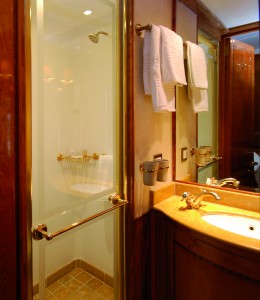
Every single moment has been like the best I could imagine it to be, from the really adventurous things to just casually hanging out with the wonderful company we have. It isn’t just a holiday but a complete life transformation, an opportunity to know life, to really live life and most importantly to love and appreciate every second and breath of life.

